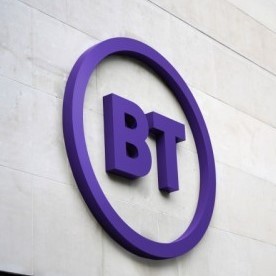Eurobites: BT takes a chance on Amazon's cloud
Also in today's EMEA regional roundup: school's in for TIP; Paramount+ reaches UK, Ireland in June; UK tech regulator de-fanged.

Also in today's EMEA regional roundup: school's in for TIP; Paramount+ reaches UK, Ireland in June; UK tech regulator de-fanged.
BT has signed a five-year deal with Amazon Web Services (AWS) which will see its internal applications transfer to AWS's pay-as-you-go public cloud, a move that the UK incumbent operator hopes will allow it to retire more cumbersome "legacy" applications, associated infrastructure and data centers. The adoption of public cloud technology is a controversial topic for telcos: On the one hand it can slash IT costs; on the other, it puts even more control into the hands of Big Tech, raising the dreaded specter of "vendor lock-in." (See It's time for telecom to worry about the public cloud.)
The Telecom Infra Project (TIP) has set up a new platform for training up the telecom industry on the mysteries of "open disaggregated solutions," which are TIP's meat and drink. Vodafone, Accenture – which helped set up the platform – and Deutsche Telekom have already signed up to the "Academy," a move that will see them incorporate the platform into their existing employee training programs. The first theme to be explored on the platform is open RAN.
Paramount+, the streaming service from Paramount Global, is set to launch in the UK and Ireland on June 22. Further launches, in Italy, Germany, France, Switzerland and Austria, are planned for the second half of the year. UK users will be able to sign up to the service for £6.99 (US$8.75) per month or £69.90 ($87.50) per annum in the UK, after a free seven-day trial. Star Trek and Rugrats will be among the buffet of delights.
The UK looks likely to abandon plans to set up a new, hard-hitting technology regulator able to curb the excesses of Big Tech, according to a Financial Times report (paywall applies). The British government had announced its intention to establish such a unit in 2020 but now appears to have rowed back on that commitment, with no enabling bill expected to form part of the Queen's Speech next week, says the report.
Sky, the UK-based purveyor of pay-TV and more, has renewed its satellite broadcasting arrangement with SES in a multi-year, €84 million ($88.4 million) deal. The renewal means that Sky will continue to exploit the Ku-band capacity at SES's slot at 28.2/28.5 degrees East to deliver TV channels in standard definition (SD), high definition (HD) and ultra-high definition (UHD) to its subscribers.
BT has been complaining about its rivals' ads again to the UK's Advertising Standards Authority (ASA). This time it's Virgin Media on the receiving end, which won't be able to run a website and TV ad again in its current form after the ASA ruled that Virgin should have provided more information about the methodology used to calculate the median download speed of its Gig1 Fibre service.
Analyst firm GlobalData says that SoftBank, the owner of UK chip designer Arm, should ignore UK government overtures and choose the New York stock exchange for Arm's planned IPO. David Bicknell, principal analyst, said that the UK's desire to run it on the London exchange "reeks of political opportunism," adding that Arm "Arm needs to be able to target the destination where most investors and key semiconductor supporters such as Qualcomm are based. That is New York, not London." (See SoftBank calls off $40B Arm sale, pivots to IPO.)
— Paul Rainford, Assistant Editor, Europe, Light Reading
Read more about:
EuropeAbout the Author(s)
You May Also Like












